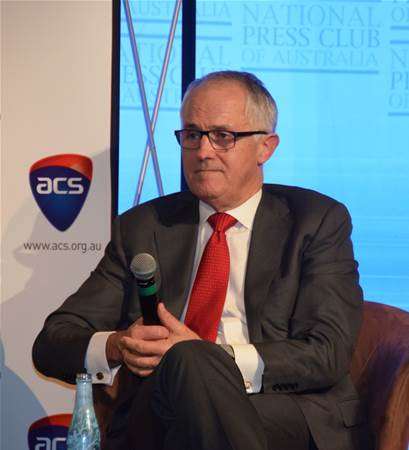As the fallout from Hillary Clinton’s use of a private email server while she was US Secretary of State continues, Australia’s new Prime Minister Malcolm Turnbull has been drawn into a similar row.
The Australian newspaper broke the story of Turnbull using a non-parliamentary email server “to conduct government business and communicate with colleagues and journalists”.
The report immediately drew parallels between the cases of Turnbull and Clinton, though a spokesperson for the Prime Minister’s office was quick to point out that the nature of communications through the private server were “non-sensitive”.
The spokesperson also sought to play down suggestions by The Australian that routing emails through a private server made it more difficult for outsiders to apply to see them via Freedom of Information (FoI).
“Many MPs and ministers use private messaging systems - including SMS, WhatsApp, Wickr, etc. and private emails etc. - for non-sensitive material for reasons of convenience and superior functionality,” the Prime Minister’s office said.
“All communications or records of a minister which relate to his or her duties are (subject to many exemptions) potentially subject to FoI whether it is on SMS, a private email server or a government email server.
“The majority of government correspondence is routine and of a non-sensitive nature and is therefore not subject to sensitive security markings.”
The Australian Government Information Security Manual provides advice on the use of non-parliamentary messaging platforms, noting they should not be used for the carriage of sensitive or classified material.
Turnbull’s private email server is hosted in Australia, according to a report by Fairfax, which noted the potential dangers of hosting email outside of parliament’s secure systems.
Hack attempts on Hillary’s server
Those dangers are real, Hillary Clinton’s case shows.
Back in March, it emerged that Clinton had used a private email server – rather than an official government email service - during her time as the US Secretary of State.
Clinton said she did not send or receive classified material from the private server. However, later reviews classed some of the information contained in emails as classified, even though they did not carry a classified marker at the time.
Clinton handed over 55,000 pages of emails from the server – and eventually the server hardware itself – to US authorities.
She also apologised for conducting email outside the US Government's secure system.
“That was a mistake. I’m sorry about that. I take responsibility,” she said.
Since that apology, investigators have learned that Clinton’s private email server was subjected to “attempted cyberattacks originating in China, South Korea and Germany”, as well as malware attempts from Russian attackers, according to several reports.
All are said to have been blocked by a “threat management” device, but the reports say this was not active for a three-month period, leaving open the possibility of a compromise.









